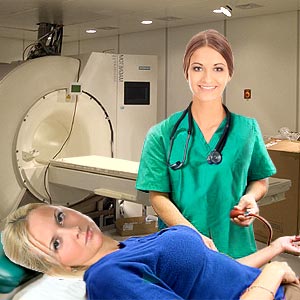 Tests for Female Fertility
Tests for Female FertilityAs stated earlier, it is better to start with the non-invasive tests before proceeding to tests that would alter the physiology of the body. This is because the invasive tests could be painful
1. Detection of ovulation can be done through the Billings Ovulation Method and the filling of the Ondo Chart.
2. The women can also visit the hospital for follicular monitoring to follow the development of the follicles to determine the exact day of ovulation.
3. Other tests for detecting ovulation include:
Recording the basal body temperature,Examination of the cervical mucus under the microscope,Carrying out the tests on the vaginal wall (Vaginal Cytology),
Carrying out an endometrial biopsy and;
Carrying out a uterine motility tests by measuring the pressure within uterus, this can only be done in a specialised centre.
4. Hysteroscopy: This involves passing a small camera into the abdomen of the woman through a small incision in the abdomen. The genital organs are then viewed through the camera.
5. Hysterosalpingography: This involves passing a dye into the uterus and tubes through a canula inserted in the cervix. The movement of the dye is then followed by x-rays to determine the scale of the womb and the potency of the tubes.
6. Tubal Insufflations: This involves passing a gas into the uterus and tubes to determine the potency at correcting the abnormalities detected during investigations.
2. The women can also visit the hospital for follicular monitoring to follow the development of the follicles to determine the exact day of ovulation.
3. Other tests for detecting ovulation include:
Recording the basal body temperature,Examination of the cervical mucus under the microscope,Carrying out the tests on the vaginal wall (Vaginal Cytology),
Carrying out an endometrial biopsy and;
Carrying out a uterine motility tests by measuring the pressure within uterus, this can only be done in a specialised centre.
4. Hysteroscopy: This involves passing a small camera into the abdomen of the woman through a small incision in the abdomen. The genital organs are then viewed through the camera.
5. Hysterosalpingography: This involves passing a dye into the uterus and tubes through a canula inserted in the cervix. The movement of the dye is then followed by x-rays to determine the scale of the womb and the potency of the tubes.
6. Tubal Insufflations: This involves passing a gas into the uterus and tubes to determine the potency at correcting the abnormalities detected during investigations.













